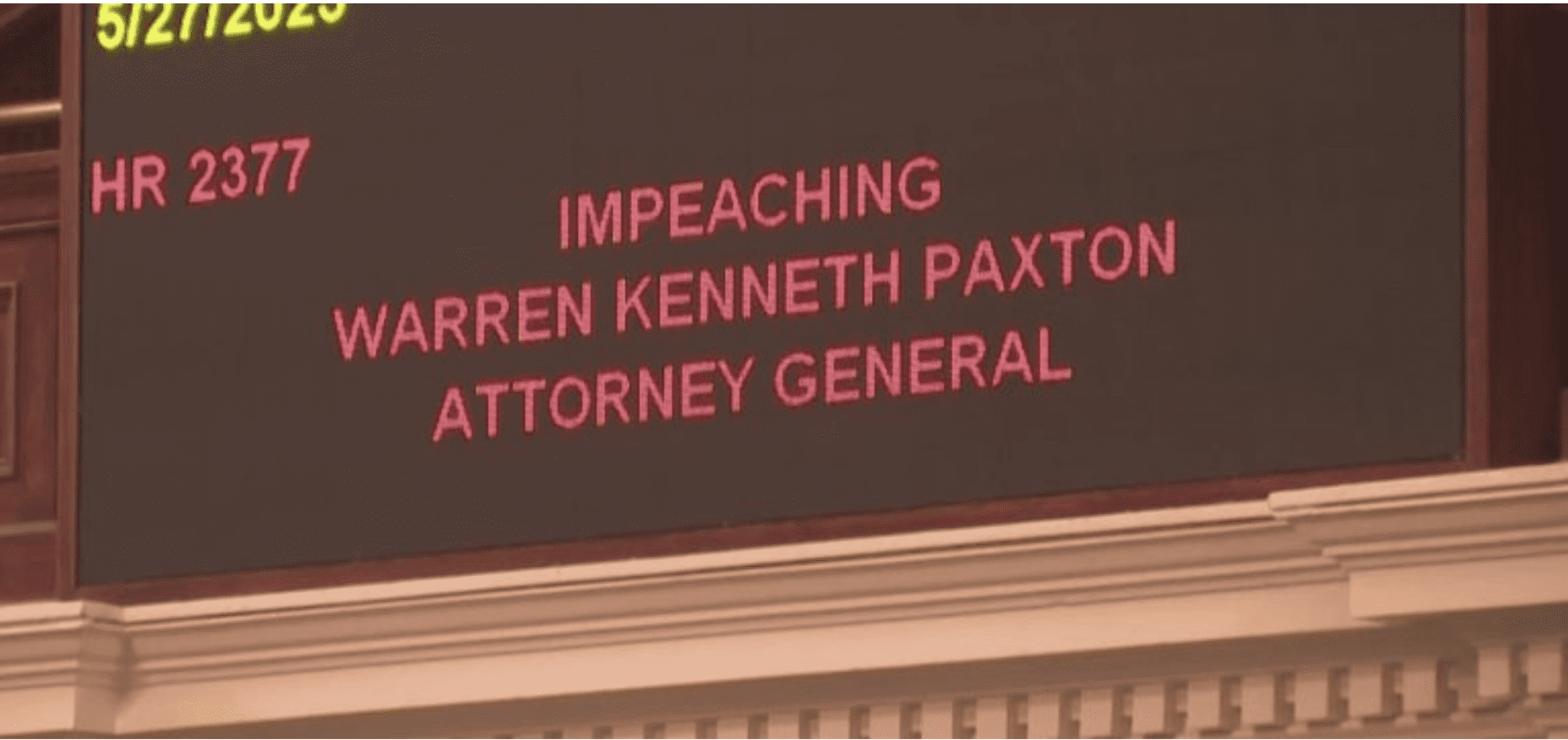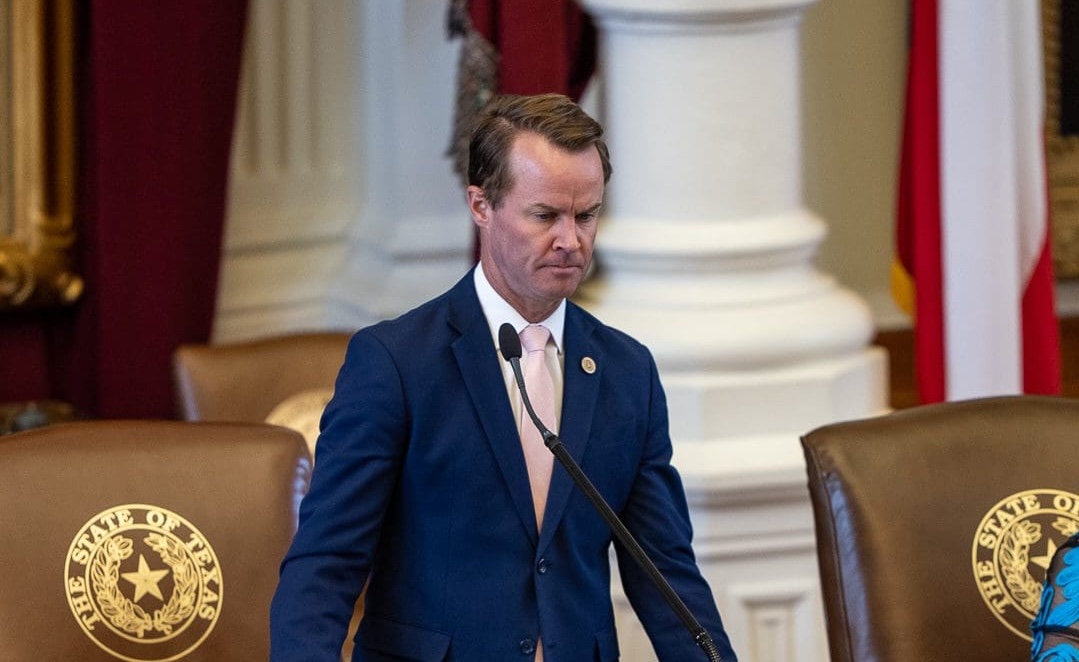On Tuesday, September 5, the impeachment trial of Texas Attorney General Ken Paxton will begin in the Texas Senate. While much attention has been focused on the target of that effort, it is only right to also take a look at some of the people involved in the prosecution of Paxton.
Anyone who follows Texas politics knows who House Speaker Dade Phelan is and knows that he secretly appointed a committee in March to receive testimony on charges against our conservative AG, springing an impeachment vote on the House at the very end of the 88th Legislative Session. But who are the state representatives who make up the House board of managers who will prosecute the case?
A perfunctory glance at the state representatives who make up the board tells us that it is comprised of seven Republicans and five Democrats. That seems fair enough on the surface. But not so fast. What do we know about them and particularly, what do we know about the seven Republicans? Let’s take a look.
For some insight, we went to a study from Rice University by political analyst Mark P. Jones, an astute observer of the evolution of politics in Texas. The study ranks each legislator on a spectrum from left to right, based on a sample of their votes each year. The categories are Very Liberal, Liberal, Slightly Liberal, Slightly Conservative, Conservative, and Very Conservative.
Of the seven Republicans on the board, four are ranked as Slightly Conservative, and three are ranked as Slightly Liberal, dipping into the Democrat side of the equation. That doesn’t sound very good for a state represented by a majority of conservative voters and who solidly re-elected conservative AG Paxton less than a year ago.
It is noteworthy here that while Democrats have managers who fall under the Liberal and Very Liberal rankings, Republicans have zero representatives who fall under the Conservative and Very Conservative categories.
We will also look at some of the biggest contributors to legislators and what board managers received from those contributors this year. There are three PACS and one individual that we found to be consistently on the top donors list for most legislators and who give to Republicans.
The Texas Trial Lawyers Association is considered a Democrat-supporting organization. The Texas Realtors PAC is regarded as a Liberal Republican PAC. Texans for Lawsuit Reform started as a conservative organization but is now regarded as a Moderate Republican one. Data on the rankings of top PACS in Texas comes from an organization known as Transparency USA.
These are not comments on who each manager may be personally, nor are they comments on the PACS who contribute to them, but simply facts on where they stand ideologically and what organizations have “bet” on them.
Let’s start with the board chair, State Rep. Andrew Murr. Murr represents House District 53, an area northwest of San Antonio including the counties of Bandera, Crane, Crockett, Edwards, Kerr, Kimble, Llano, Mason, McCulloch, Medina, Menard, Pecos, Real, Schleicher, Sutton, and Upton.
Murr, though a Republican, dips into a blue category, ranked as Slightly Liberal. First among his top five campaign donors is Dade Phelan, who contributed $52,347. In addition, Murr received $43,500 from the Texas Realtors PAC and $43,500 from Texans for Lawsuit Reform.
Did you know that Speaker Phelan makes substantial political contributions to members of the House that he manages? In fact, he is the second largest donor to House members, having given a total of $4,142,637 to 38 legislators.
Also regarded as Slightly Liberal on the board is House District 99 State Rep. Charlie Geren, who represents an area in and north of Fort Worth in Tarrant County. Geren received a donation of $33,500 from the Texas Trial Lawyers PAC and $17,500 from the Texas Realtors PAC.
The third of the Slightly Liberal legislators on the board is State Rep. Morgan Meyer of House District 108, which is part of Dallas. Morgan received a donation from Speaker Phelan of $145,400. From the Texas Realtors PAC, he received $63,409; and from Texans for Lawsuit Reform, he received $154,000.
Interestingly, Geren and Meyer are two of the three most liberal Republicans in the Texas House.
State Rep. Jeff Leach is among the four Slightly Conservative members of the board. He is from House District 67, representing the heart of Collin County. Leach has received $65,150 from Speaker Phelan, $38,201 from the Texas Realtors PAC, and $113,690 from Texans for Lawsuit Reform.
Slightly Conservative State Rep. David Spiller represents House District 68 and the counties of Brown, Comanche, Cooke, Eastland, Jack, Lampasas, Mills, Montague, San Saba, Shackelford, Throckmorton, and Young. He received $97,700 from Phelan, $55,625 from Texas Realtors PAC, and $101,000 from Texans for Lawsuit Reform.
State Reps. Briscoe Cain and Cody Vasut seem to be the most conservative of the group, ranked by the Rice U study as second and third respectively of legislators who lean right, although both are still ranked Slightly Conservative. Cain represents House District 128, which is part of Harris County, and Vasut represents House District 25 in Brazoria County.
Cain received $8,625 from Texas Realtors PAC and $24,000 from Texans for Lawsuit Reform. Vasut received $2,625 from Texas Realtors and $7,500 from Texans for Lawsuit Reform.
Whether or not AG Paxton is guilty of any of the charges leveled against him will be ruled on by the members of the Texas Senate. Whoever is leading the effort to unseat a recently elected and very effective state official, it is useful to be able to take a look at the people who are carrying out that effort.
It is also useful and imperative that the conservative voters of Texas recognize that there are no truly conservative representatives in that chamber. Voters in Texas may or may not be drifting to the left, but those who we elect are already well on the way.
In 2017, Transparency USA published an article entitled “The Four Political Tribes That Run Texas.” It posits that those four tribes are Democrats, Liberal Republicans, Moderate Republicans, and Conservative Republicans. The most powerful of the four factions in the Texas House are the Liberal Republicans, who hold the speaker’s chair and other important positions in House leadership.
“This tribe is able to expand its already formidable power by coercing cooperation from moderate Republicans and by making alliances with Democrats,” according to Transparency USA.
In the years since its writing, the drift left of our officials continues, as demonstrated by the lack of Conservative or Very Conservative members in the Rice U rankings.
If Texas voters want lawmakers who do as they promised when it comes to voting on legislative priorities and supporting conservative officials and initiatives, voters must pay much closer attention to what their elected officials do and not just what they say.
How will your state senator vote on the Paxton impeachment trial?
This is a commentary published with the author’s permission. If you wish to submit a commentary to Texas Scorecard, please submit your article to submission@texasscorecard.com.




